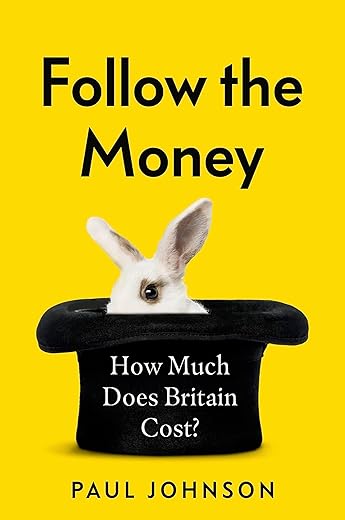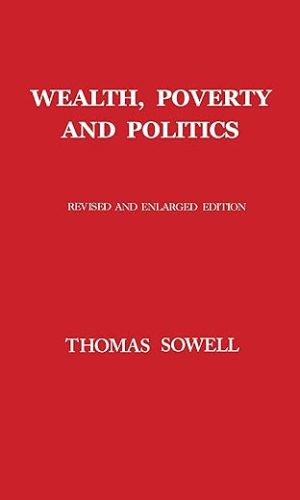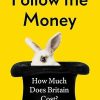Follow the Money: ‘Gripping and horrifying… witty and brilliant. Buy it’ The Times
£20.00£25.00 (-20%)
THE SUNDAY TIMES BESTSELLER
‘This is a brilliant book. Buy it, read it and weep’ The Times
‘The antidote to naivety that our political class needs’ Sunday Times, Book of the Week
‘A treasure trove of killer facts’ Guardian
‘Read it, absorb it, and understand how the country works’ Laura Kuenssberg
‘If you want to understand why crazy politics routinely trumps economic rationality in government choices, read this’ Robert Peston
Paul Johnson and the enormously respected Institute for Fiscal Studies aim to hold Government to account – without which politicians will get away with their half-truths, elisions and dubious claims. This is a forensic examination – by the man best placed to do so – of the way the state raises and spends £1 trillion of our money every year. To follow the money. To provide an explanation, of where that money comes from and where it goes to, how that has changed and how it needs to change.
Government decisions determine the welfare of the poor and the elderly, the state of the health service, the effectiveness of our children’s education, and how prepared we are for the future: whether that is a pandemic or global warming. As a society, we are a reflection of what the government spends.
Johnson looks at what happened following the financial crisis of 2008-09 and the austerity years that followed. He examines the way that the government tackled the economy during Covid – when the UK budget shot up to over a trillion for the first time – and he analyses prospects for our future as we grapple with looming recession and the cost of living crisis.
Read more
Additional information
| Publisher | Abacus (23 Feb. 2023) |
|---|---|
| Language | English |
| Hardcover | 320 pages |
| ISBN-10 | 1408714019 |
| ISBN-13 | 978-1408714010 |
| Dimensions | 15.8 x 3.2 x 23.6 cm |








by j knightley
Essential reading for all tax payers
by Kindle Customer
Starts with the facts: the amounts raised by the various taxes and duties, and the costs of the various aspects of public expenditure. Analyses them for effective on their aims and the wider social and environmental effects. And outlines ways forward. All very easy to read. Except that it does enrage the reader about the perverse and self-defeating nature of so many of our fiscal tools, and the drivel spouted by many politicians and the popular press.
by NJB
Paul Johnson richly deserves attention in the world of economics.
This book is full of interesting facts – sometimes a bit overwhelming but nonetheless of considerable value.
I also recently read the book by Edward Chancellor book “The Price of Time: The Real Story of Interest” and I’m taken by the number of bad historical decisions described in both books – some of them really disastrously bad. Problems include how people actually respond to economic stimuli as opposed to prediction, and how clever people manipulate the opportunities they find but cause financial chaos.
I believe both these authors deserve having their views taken into account as major contributions – although not without question.
Paul Johnson puts some views across authoritatively, usually seemingly right but not always totally convincing in every case. I’d also have liked to hear more on his take on low productivity and high house price inflation over the last decade or so – a period corresponding to the ultra low interest rates and quantitative easing following the 2008/2009 crash – something that Edward Chancellor addresses.
Generally I’d like to see less confidence by all our leading economists, acceptance that their predictions may be wrong, and willingness to publicly debate the views of others openly. I’d like Paul Johnson to do that as well – although I regard Paul Johnson as being amongst the very best along with most of the content of his book.
I’ve dinged the book one star because it wasn’t always clear what was less founded opinion, and because sometimes the amount of detail seemed unnecessary – but it is probably the best popular reference book available at present.
by Brian Sweeney
This book is well written by someone who knows what they are talking about and is able to share that knowledge in a clear manner. It lays bare the current situation we are in across a range of highly important areas of life by explaining both how and why we arrived at this point. Having done so the writer sets out the choices we now face.
Whilst there is much to be concerned about there is hope for the future if the arguments put forward in this excellent book are followed.
by Kenneth J. Morris
As an avid reader of current UK economic, business and political affairs I have often read observations, both critical and supportive, of matters of national/local government expenditure which clearly confirm that the authors (or spokesperson) does not understand what is so clearly and comprehensively contained in this book. In summary: The government has no money, only OUR money. So we ALL should understand how to use it.
by zubedaky
whilst this is an insiders view, of an insiders view it is not massively profound or insightful. Its neither policy wonk detail or consumer fodder. Aside from selling copy whats the point.
by John Sainsbury
An outstanding read, very well written, Mr Johnson has the gift of writing about a possibly “dry” subject and making it a great read. His political impartiality shines through, though you’ll be left longing for him to be in charge of the finances of the UK.
by Geoff Crocker
In his inimitable racy, self-confident, didactic style, Paul Johnson, the go-to economics commentator for the BBC, sets out a comprehensive portrait of UK social needs and expenditure. He documents inadequacies and inequalities in social provision; in health, where NHS outcomes are worse than comparable countries (p127,149); in social care (p154), where funding social services care home residents relies on cross subsidy from self-funding residents (p169); in education (p180), where equally gifted people from poorer backgrounds receive lower lifetime earnings (p225), with further education suffering stringent cuts (p218); in welfare subject to deep cuts (p85,95). In-work poverty (p92) means that work and wage are no longer delivering adequate income. Johnson reckons high housing costs and increased renting are the reason for this (p76), along with fierce benefit reductions, but he offers no housing strategy solutions.
Local authority services were cut from 2009-2019 by 40% to 60% (p246). The only group to have benefited during the period he covers are pensioners. But even here there is total inconsistency in forcing saving for retirement whilst then allowing pensioners to blow the whole lot when reaching pension age. Opting in to pension schemes provides no meaningful retirement income to those on low earnings, but costs businesses hugely in administration, whilst generating profit for pension companies. The reforms introduced by Steve Webb and Adair Turner need critical review.
We are suffering from dire growth and low productivity. Government deficit is the rule, being the case in 99 of the last 122 years (p264), so that debt has ‘ratcheted up’ (p3), but can’t keep growing (p10, 261ff). Johnson discusses tax reform, including unworkable wealth taxes, capital gains and inheritance tax (p56). He advocates taxing multinational corporations where they make sales rather than profit in the country of their incorporation (p48), a proposal which is flawed by complexity, multiple routes to evasion, and losses as well as gains, for example the loss of Rolls-Royce profit tax in the UK to sales tax in the countries it sells its aero-engines.
There are, Johnson says, no easy answers to the extensive funding dilemmas he identifies, as he proves by the weakness of his proposed solutions of stability, education, infrastructure expenditure, tax reform, EU trade, and relaxed planning rules (p275), all necessary but not sufficient.
Like many of the fellow commentators he cites with regular approval, Johnson takes a purely financial accounting view of the economy. His title is to ‘follow the money’. What’s missing is any consideration of the real production economy which generates output. Questions of technology, productivity, investment, R&D, new products and services, new patterns of employment and income are entirely omitted, but these are the generators of growth and prosperity.
To ‘follow the money’, Johnson would first need to consider creation of money by central banks. He recognises that central banks now hold substantial proportions of government debt (p9) but fails to follow the implication of this, ie that since the central bank is itself owned by government, then this is equivalent to zero net debt, otherwise known as direct monetary funding of government expenditure. This is supposedly prohibited in most jurisdictions, to prevent government profligacy. It is however widespread, and negates the argument that high levels of debt require austerity.
The low point of Johnson’s discourse is his superficial 2-page trashing of proposals for a basic income (p90-91). He resorts to insults, calling the proposal ‘zombie…stupid….fantasy’ and its proponents ‘charlatans’, normally a clear indication of weakness of argument. He quotes his hero John Kay who writes ‘either the level of basic income is unacceptably low, or the cost of providing it is unacceptably high’, dismissing ‘the appeal of the underlying philosophy’. But Johnson cites none of the literature proposing basic income, fails to take its arguments seriously, and therefore offers no credible critique. Contrary to what Johnson and Kay write, the economy is perfectly able to deliver a universal basic income. It already does. One imagines that Johnson and Kay would accept the need for society to ensure that everyone had access to a basic level of consumption. That requires a corresponding universal basic income.
The question is not whether a universal basic income is needed, but how it is supplied. If waged employment can deliver it, then fine, but Johnson himself admits the existence of in-work poverty, which is a sure indication that wages are inadequate to ensure basic income. So welfare benefits are needed, the question then being whether these should be conditional or universal. Again, Johnson himself lists the failures of targeted conditional welfare benefits of harsh conditions, intrusion, humiliation, low take-up rates, and above all, unemployment and poverty traps due to their steep withdrawal tapers, which once reached 96% (p80), but have been moderated to 70% under Universal Credit (p88). He also correctly points out that making tapers more shallow extends their reach up the income scale to the point that people paying higher tax rates then also receive welfare.
Authors Malcolm Torry and Stewart Lansley have demonstrated that a revenue neutral basic income scheme is perfectly feasible. Recent macroeconomic modelling work by Cambridge Econometrics has demonstrated that a £100bn basic income scheme funded by debt-free sovereign money yields a stable equilibrium without inflation or devaluation as demand takes up spare capacity and then stimulates the investment, production and growth Johnson calls for. Moreover, when automation leads to further reduction in aggregate wage, basic income fills the gap, again in stable equilibrium. In an imaginary fully automated economy, all GDP would be basic income. It therefore follows that to the degree to which production is automated, a component of basic income is structurally required. None of this is covered in Johnson’s woefully inadequate account.